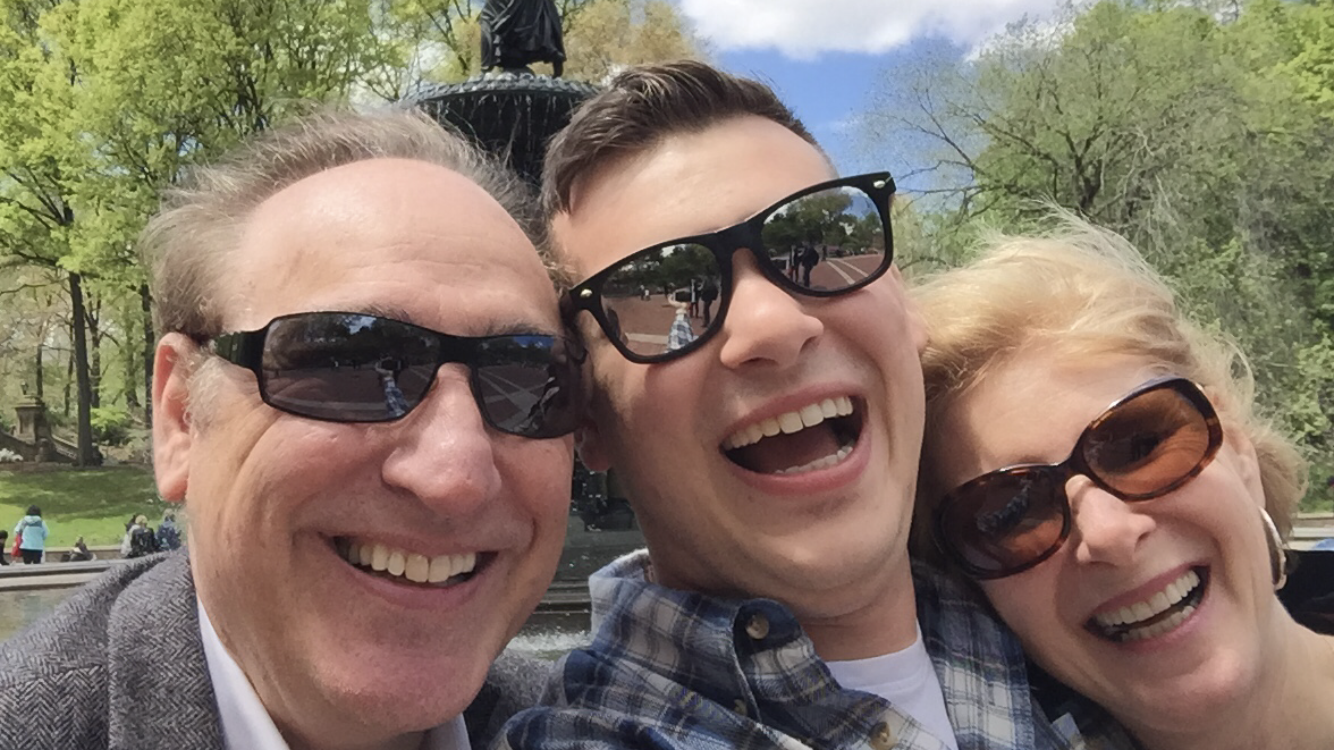Do you shy from being vulnerable and sharing your struggles with others?
Reaching for my phone, half awake, I am greeted with a blog post from my son Theo’s favorite high school teacher, Mr. Armstrong. The opening sentence is, “I just taught from my living room (due to the pandemic) what will probably be my last high school English class ever.” Oh no! I am so sad, for Mr. Armstrong and all the kids who will miss out on delving into their being with the most amazingly life-changing teacher. The really heart-wrenching part is it means the disease that makes him unsteady on his feet and challenges his speech, has gotten the upper hand.
I know all this because he vulnerably shares who he is on the page. Reading between the lines, I hear him explore and expose what it means to live with an incurable disease. And watch him embrace and express his passion for passing his life wisdom onto his precious children and students. He says, “I tried to be my most honest, vulnerable self. For the students sake. For my sake. In fact my best teaching often happened in the privacy of my heart and mind.” His words just split me wide open. Jay makes me think about the power of vulnerability to bring us peace and wisdom.
Owning Our Life
What courage it takes for any of us to show our insecurities, our self-doubt, our weakness, even our ugly parts. But it’s not just us, it’s everyone. Every single one of us knows we possess less-than-perfect-parts—because we’re human! And when someone like Jay shows us his pain, his truth, it opens us to ours. What a gift! His writing brings me insight into why I revealed so much of my own life challenges and suffering in my book, The Affirming Way of Life: See the Good, Speak the Good, Spread the Good.
If you’ve read my book or blog (even if you haven’t, I’ll give you a taste my of nakedness on the page), you know it took me a good portion of my adulthood to heal myself from a dysfunctional childhood living with my loving, bipolar mother. I’ve shown you my struggles of raising my one precious son with ADHD, in a school system unprepared to support his learning style. I’ve told you about my stormy relationship with my step-mother who blocked me from getting close to my dad. How my husband and I were mired in negative attitudes toward each other (they piled up from years of not discussing our grievances and hurts) until a momentous conversation that set us on the road to rekindling our love for one another. Add to that my lion’s share of negative self-talk. And this is just a summary!
I share who I am in the hopes it will help others accept and embrace their less-than-pretty-parts, too. And in the process see that living an affirming way of life is possible even with all of our imperfections. And there’s more.
Unraveling my experiences on the page, has helped me to own my life. I gain perspective. I distance myself from the situation. And I see a brave woman who just wants to love and be loved.
Vulnerability Deepens Relationships
“Vulnerability is the birthplace of connection and the path to the feeling of worthiness.”
There’s a bonus to sharing our shameful parts. It helps others feel safer to open up to us with their fears, insecurities and less-than-pretty-parts. And that’s where deeper more meaningful relationships are born.
Writing this piece, helps me remember when a friendship became a sistership.
For the first ten years of my friendship with Lynn, I turned to her for support and encouragement as I navigated through a very unsettled time of my life. She empathically listened and offered wonderful advice as I spilled my anxieties and fears. Yet she never opened up to me. In my eyes she had the perfect family life and was the together person I hoped to become.
A shake-up in her life, cracked her perfect façade—her husband left her. She turned to me for the support she’d always given me—and our deeply loving, most authentic sistership was born.
Lynnie (she became), shared with me her need to appear perfect living with her perfection demanding husband. She revealed that she too had a bipolar mother (such a surprise, I thought I was the only one at the time), and cried to me about her fears and insecurities of being alone for the first time in her life.
For over 40 years now we share the precious gift of sistership. Our relationship is so close because we both share our full selves together. We truly listen, embrace each other’s shameful parts, and see the best in each other when the other can’t. My vulnerability opened two hearts to create the deepest of relationships.
Vulnerability Brings Peace and Wisdom
It’s all about opening. Opening our own heart and mind to feel our pains and our shame. When we are brave enough to crack our shell and embrace our very human innards we open to the flow of peace.
Wisdom grows, as we continue to share in our trusted relationships, all the complexity of being our very human self. And that’s the opportunity for everyone of us!
Your Takeaways
Openly sharing who you are, your doubts, imperfections and fears makes you more real, more human.
Writing or journaling our pains and doubts can help us own our beautiful imperfect life.
Reach out to others you trust with your pain. It can not only heal you, but build the most meaningful life-enhancing bonds!
The pay off of making peace with your full self, is wisdom.
WHY NOT EMBRACE YOURS AND OTHERS VULNERABILITY AS A STRENGTH!
Available on Amazon







